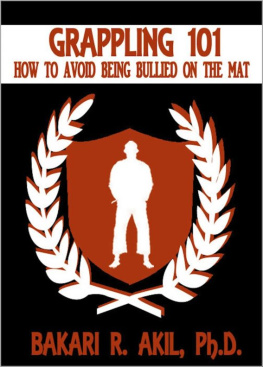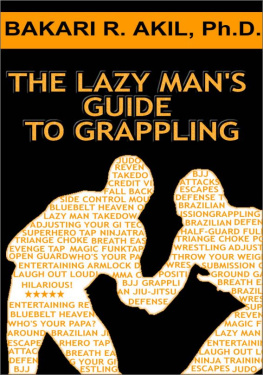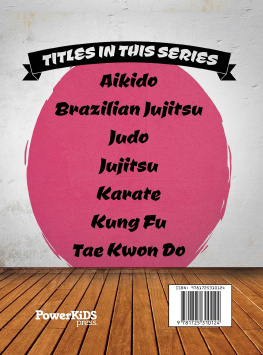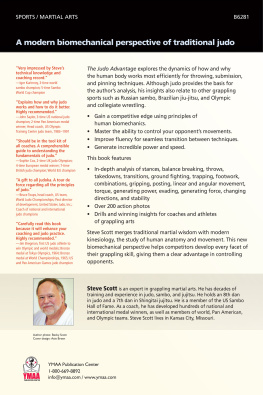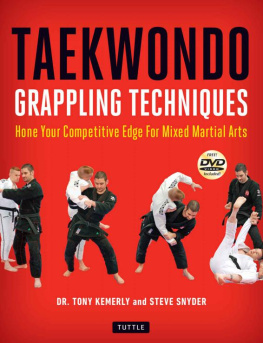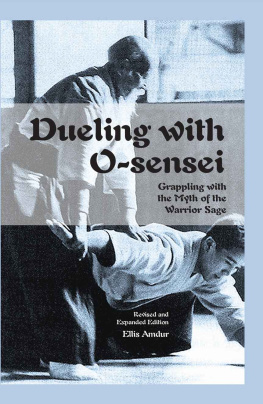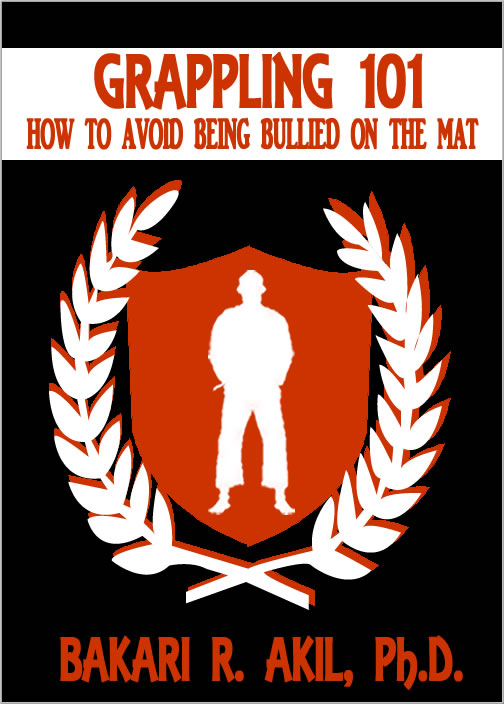
Grappling 101: How to Avoid Being Bullied onthe Mat!
Bakari Akil II, Ph.D.
Copyright Bakari Akil II, Ph.D. 2012
Published at Smashwords
ALL RIGHTS RESERVED. No part of this reportmay be reproduced or transmitted in any form whatsoever,electronic, or mechanical, including photocopying, recording, or byany informational storage or retrieval system without expresswritten, dated and signed permission from the author.
Manufactured in the United States ofAmerica
Dedication
For grapplers who want to know what they needto know!
Table of Contents
This is the Bully Proof for beginninggrapplers. It will help you develop a force field to help shieldyou from making newbie mistakes. In the first grappling sessionsmost of us are usually taught the basics; break-falls, the mount,guard, side control and a few escapes. Yet, there are certaintechniques and things we should do (or not do) that will be treatedas asides. We learn them as pointers that people will toss induring a roll or at a random moment that not everyone will be privytoo. In other words, it is easy to miss out on something that weshould know.
The advice in Grappling 101 isinformation that people will not share with you during instructionor drill, but will tell you at the most inopportune moments. Theyare pointers that everyone should give you on day one, but end upas sporadic pieces of advice; usually shouted out while someone ishanding your ass to you.
This is not a handbook that shows youstep-by-step sequences that will help you wreak havoc in your gymor on the competition mat. Instead, it is grappling theory.It was written with the intention of keeping youfrom becoming a victim.
Theoretically, if you use the advice in thisbook it will save you a lot of grief and help you to avoid a lot ofneedless tapping. The information in Grappling 101 will takemonths and in some cases years away from time that would normallybe spent as a newbie, then as a rookie. It will keep you frommaking what someone, who is hard on themselves, would describe asstupid or silly mistakes.
***Attention: This book is for beginners.Read this book before you begin grappling! That said; if you havealready begun to study submission wrestling then youve probablylearned whats in this book the hard way. Yet, it is always good toreview the basics, so all can read Grappling 101.
Thanks,
Bakari Akil II, Ph.D.
AKA JiuJitsu365
Posture...sets our body up in thestrongest, most powerful position possible, which allows us togenerate leverage effectively- Nic Gregoriades,Roger Gracie Black Belt
The veterans know what is about to follow,but the new guys wont have a clue. Here it is. The first few timesafter you slap hands to begin a grappling bout, your opponent willlook at you as fresh meat that is ready to be served in any type ofdish. Of course they will want to help you, but at varying degrees.The higher the belt, the more guidance you will receive in yourinitial rolls. But as the rank of the person begins to wane or asthe height, weight and muscularity of the new guy increases, thathelp will decrease substantially. Black, Brown and Purple belts areusually in teacher mode with new guys, but most White Belts andmany Blues are trying to build a reputation and a gym win record.So guess what? You are up next in their opponent list.
Heres the first tip: Its all aboutposture.
Most likely, a new person will not start arolling session standing, but from the knees. Further, you may endup starting in someones guard (where your opponents legs arewrapped around you or vice versa.)
The person who has you in guard has oneinitial mission. That mission is to disrupt your balance. Therewill be a lot of grabbing at your collar, gripping of sleeves andbridging of hips, but his main focus is to tilt you off kilter. Ifyou allow your rolling buddy to do this then he will be able topull you into him, maneuver you into a position to be choked orarm-barred or in worst case scenarios, take your back.
A good way to keep this from happening is tomaintain an upright posture. But of course, this is easier writtenthan accomplished. However, here are a few tricks you can use tomaintain position.
First, imagine as if there is a teacup at thetop of your head. Or act as if you are in a charm school and youhave to balance a book on the top of your dome. Under nocircumstances should you allow the book or teacup to fall off.Doing this will allow you to naturally maintain posture. That isnot the end though because the pushing, pulling, agitating and hipbumps by your opponent will never cease.
If you stay in guard, eventually your rollingbuddy will crack your posture. When this starts to occur, look upstraight to the ceiling. Act as if you are an oak tree breakingthrough the brush.
Another way to maintain posture is to thinkof yourself as a superhero about to take flight when your postureis being broken. Imagine Superman or Ironman exploding into thestratosphere with their foreheads pointed to the sky and bodiesstraight as a rail.
Grappling 101: Imagine balancing ateacup on your head when grappling. It will help you maintainposture. When your posture is broken fight to look up at theceiling. Act as if you are a superhero rocketing into theatmosphere. This will improve your game immensely.
In your rolling buddys quest to knock youoff balance (in his guard) there is a grand prize that makes allthe pushing and pulling worthwhile. And that is when your handcrashes to the mat. Its like leaving a turkey leg on the shore foran alligator.
There is so much that can be done when agrappler neglects to keep his hands off the mat when in someonesguard. Your opponent can attempt a hip-bump sweep, a Kimuraattempt, an Omoplata or a couple of arm-locks. Those are justa few techniques your opponent can try. I was unlucky enough tofind out about keeping my hands off the mat in my first Judotournament. For some reason, I was paired against a Brown belt as aWhite belt in my first match. I used my favorite technique, adouble leg takedown, and took him to the mat. I didnt get ippon sowe ended up grappling. As he held me in his guard, I placed bothhands on the mat so I could spring up. He overwrapped my right armand when I tried to get up again he locked on an arm bar that mademe re-think grappling for a few minutes. No one had told me theimportance of keeping my hands off the mat and I paid for it.
This is one of those pointers that is usuallynot passed on in drills and people are usually warned against doingso when in a live roll by the instructor or by a rolling mate if heis a senior belt. However, if no one is watching you wrestle andyour rolling buddy is an equal then leaving a hand on the mat isjust asking for it.
Grappling 101: Do not let youropponent bait you into putting your hands on the mat. If you mustput your hand on the mat for a technique do it quickly. When inguard it is best to assume a straight posture and to keep yourhands on your rolling buddys hips or belly. This will take away ahost of options from your opponent.
So far weve covered posture and keeping yourhands off the mat. Now lets discuss another tactic your grapplingmate will use to keep you off balance and to apply his game. Thattactic is angling his body so he can attempt arm-bars, chokes,sweeps and reversals.
Even with great posture, keeping your handsoff the mat and denying attempts by your opponent to push and pullyou off balance your opponent still has options to affect sweeps,reversals and submissions. Angling is a good way to achieve any oneof those objectives. Your opponent angles by turning his upper bodyaway from you and so your hips and his are no longer inalignment.
Next page
